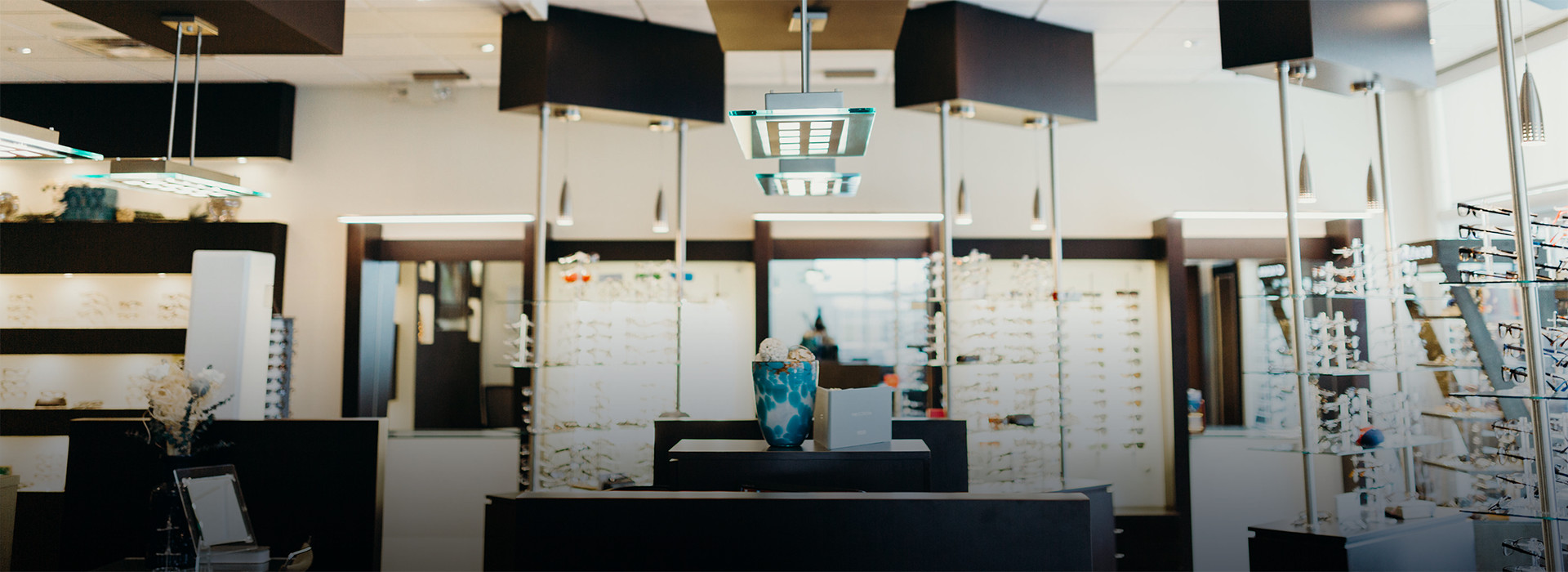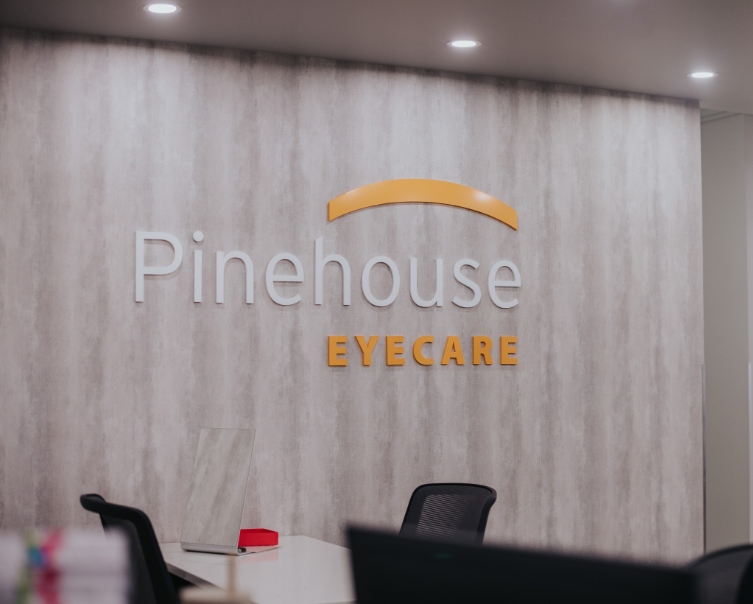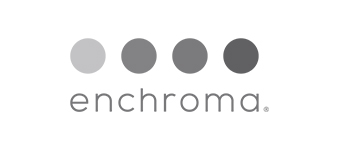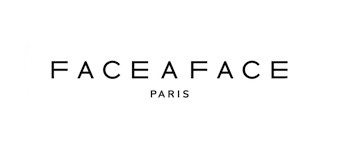Blue light glasses might not be a cure-all, but many people find them helpful for reducing glare and visual fatigue during extended screen time.
Discomfort from screens is often due to factors like poor posture, reduced blinking, and a lack of breaks—not blue light itself. However, wearing blue light glasses—especially in the evening—may help reduce visual stress and support better sleep patterns.
From dry eyes to headaches and disrupted sleep, the effects can be frustrating. While many blame blue light alone, the full picture involves screen glare, posture, and reduced blinking. Blue light glasses offer a potential layer of relief. Designed to filter certain wavelengths of light, they may ease discomfort and support better sleep.
Understanding Blue Light & Its Effects
Blue light is part of the visible light spectrum with short wavelengths and high energy. It’s naturally present in sunlight and plays a role in regulating our sleep-wake cycles.
In the modern world, screens and LED lighting have increased our exposure to artificial blue light—especially in the evening. Research suggests that this exposure may interfere with melatonin production, the hormone that helps signal your body it’s time to sleep.
While this can affect your sleep quality, digital eye strain itself is more often caused by prolonged focus, screen glare, and decreased blinking—not the blue light itself.
To be clear, blue light from digital screens is not strong enough to damage your eyes permanently. The levels of blue light exposure from screens are considerably lower than what we experience from sunlight.
What Are Blue Light Glasses?
Blue light glasses are designed with special lenses that filter or block certain wavelengths of blue light emitted by digital screens. These glasses aim to reduce glare, improve comfort, and mitigate the effects of blue light on sleep.
They come in a variety of styles and lens options:
- Light-yellow tinted lenses that filter larger amounts of blue light.
- Clear lenses with minimal tint for less intrusive filtering.
- Anti-reflective coatings to reduce glare from screens and artificial lighting.
While these glasses won’t magically eliminate all screen-related discomfort, they do offer benefits that may improve your digital experience.
The Benefits of Blue Light Glasses
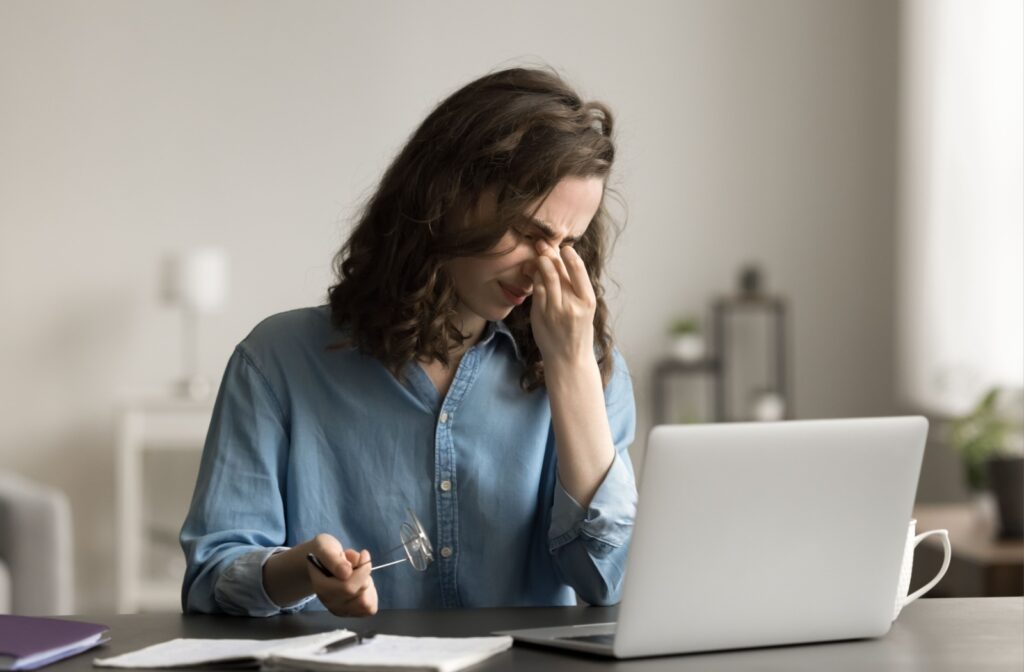
Indirect Relief from Eye Strain
Eye strain is commonly linked to extended focus and reduced blinking during screen use. While blue light glasses don’t treat those causes, they can help reduce screen glare and visual stress, which some people find more comfortable, especially under harsh lighting or during long screen sessions.
Improved Sleep Quality
Blue light glasses can reduce evening exposure to blue light, potentially supporting melatonin production and healthier sleep patterns. If you often find it hard to fall asleep after late-night screen use, these glasses may help signal your body that it’s time to rest.
Improved Comfort During Longer Screen Session
If you spend long hours on digital devices, blue light glasses may help you feel more at ease. Some users report fewer symptoms like headaches or eye fatigue when wearing them, though results vary.
A Stylish Accessory
Available in various fashionable designs, blue light glasses make for a practical and stylish addition to your daily routine, whether you’re at work or home.
Combining these strategies can help protect your eyes and improve your productivity. A few minutes of movement, or blinking exercises can go a long way when added to your screen routine.
Managing Digital Eye Strain Beyond Blue Light Glasses
While blue light glasses can be a helpful tool, they aren’t the only solution for managing digital eye strain. There are additional steps you can take to care for your eyes during prolonged screen use.
- Follow the 20-20-20 rule: Every 20 minutes, look at something 20 feet away for at least 20 seconds to give your eyes a much-needed break.
- Adjust screen settings: Lower your screen brightness and activate blue-light filter modes, especially in the evening.
- Maintain proper posture & screen positioning: Position your screen so that it’s level with your eyes and about an arm’s length away. This helps reduce unnecessary strain on both your eyes and neck.
- Use artificial tears: Lubricating eye drops can alleviate dryness, especially if you’re using a computer in an air-conditioned room.
- Take regular breaks: Stepping away from your screen periodically can work wonders for your eyes and overall comfort.
- Explore specialized lenses: If screen time frequently leads to headaches or significant discomfort, your optometrist might recommend specialized lenses. These are designed to manage light sensitivity and migraine-related symptoms, and are different from standard blue light glasses.
Small adjustments to your daily habits can make a noticeable difference in reducing discomfort and protecting your long-term eye health.
Your Eyes Deserve Proper Care
For many people, blue light glasses provide a simple way to reduce screen-related discomfort and improve daily life in our increasingly digital world. However, they’re generally most effective when combined with healthy screen habits. Unsure if blue light glasses are the right choice for you? Book a consultation with Pinehouse Eyecare to explore solutions for your digital eye health. Our friendly and knowledgeable team will guide you through options to keep your vision sharp and your eyes comfortable.

